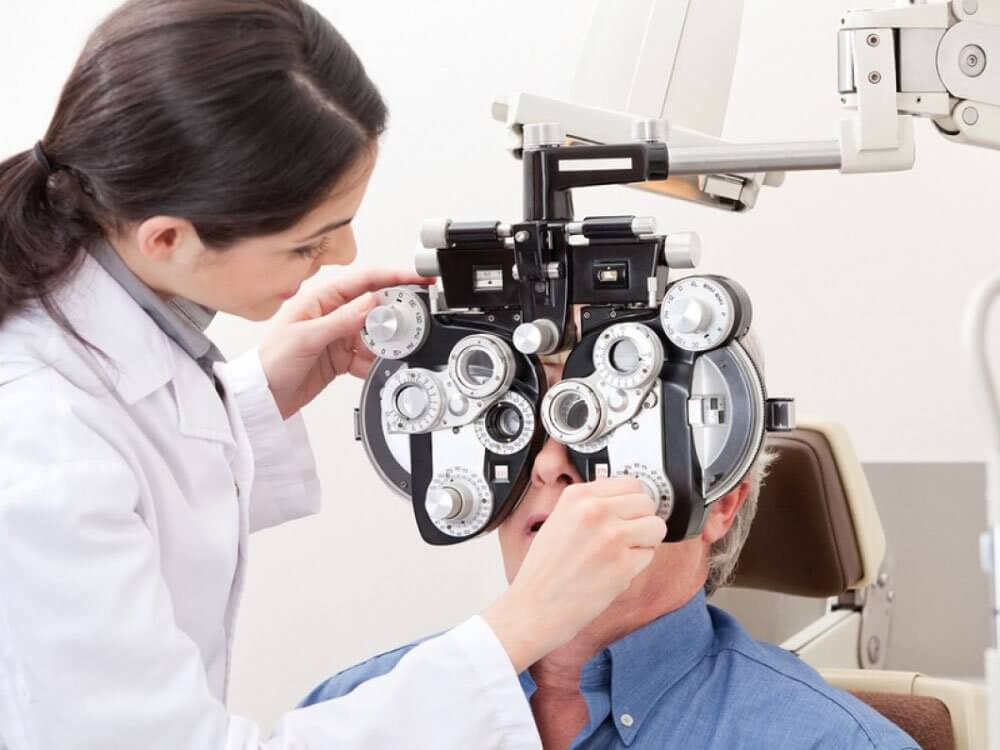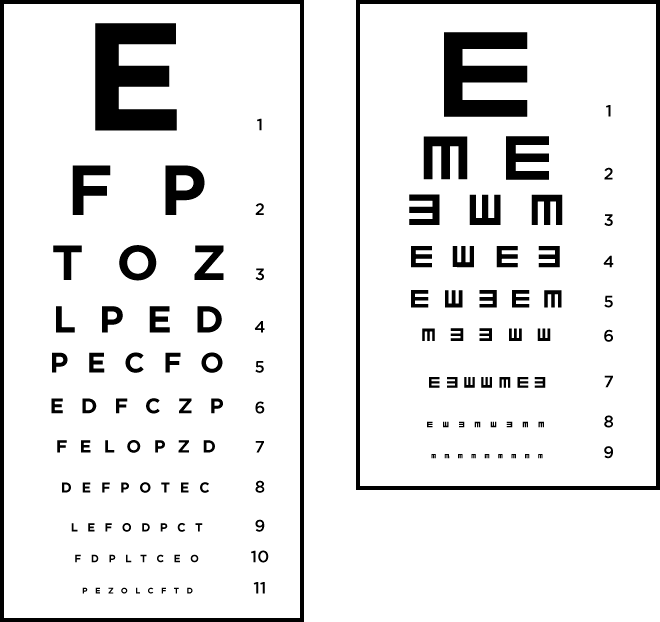Eye Exam
Posted by: Invision Optometry in Category Eye Health

During a routine eye exam, your eye doctor will perform a series of tests to assess your vision and eye health. Most people schedule an eye exam after experiencing eye or vision related symptoms, problems, or when they need a new pair of glasses. The test performed to determine your glasses prescription is called ”refraction”, and is only one small part of a comprehensive eye exam. During an eye exam you will be asked to describe any vision problems that you are experiencing and the factors that make them better or worse. Your doctor will then check your visual acuity using an eye chart. Next, to see if you need glasses, your eye doctor will place several lenses in front of your eye, one at a time, and ask you when the letters become easier to see.

Eye Charts
Eye charts measure visual acuity only. And, while they do help your eye doctor determine whether you need prescription glasses, they cannot measure your peripheral vision, depth perception, color perception, or ability to perceive contrast. This type of test cannot measure the health of your eyes, such as eye pressure, whether or not you have glaucoma, how dry your eyes are, or if your retinas are healthy. This fact makes one thing clear, it is important that you understand the type of eye exam you are getting. Keep in mind that the term “eye exam” is a general term, and is often promoted through online websites as an alternative to visiting your eye doctor. To ensure the overall health of your eyes, it’s always best to schedule an annual comprehensive eye exam with your eye doctor.
A Comprehensive Eye Exam Is Not Only For A Prescription…
What is a Comprehensive Eye Exam?
As the name suggests, a comprehensive eye exam is an in-depth examination of your eyes. A wide variety of tests and procedures are used to ascertain your overall health. The exam should include checks on your medical history, visual acuity, pupils, side vision, eye movement, eye pressure, the front portion of your eye, your retina and optic nerve, and your prescription. If further testing is needed, a specialized imaging technique such as OCT may be used. Testing performed during a comprehensive eye exam is crucial in diagnosing a disease in its early stage. It allows your eye doctor to test for abnormalities in the back of the eye, on the eye’s surface or inside the eye. A comprehensive eye exam provides important information about the health of your eyes, and aids in the early detection of health conditions. Make sure you get a comprehensive eye exam every year as a part of your commitment to your overall health.
A Comprehensive Eye Exam Is A Physical For Your Eyes…
The Importance of Getting an Annual Comprehensive Eye Exam
One of the most common misconceptions is that since you are not experiencing noticeable vision issues a comprehensive eye exam is unnecessary. This could not be further from the truth! In fact, annual comprehensive eye exams go well beyond determining your prescription for glasses or contacts. Think of it as being just like a physical, you do not get one when something is wrong. You get a physical to ensure everything in your body is working, as it should. Well, an annual comprehensive eye exam works the same way. During this type of examination, your eye doctor evaluates how your eyes work together, checks for eye diseases, and assesses your eyes as an indicator of your overall health.
Detecting Systemic Conditions
Because your eyes are the only organs that can be viewed outside of your body, eye doctors are often the first healthcare professional to detect systemic conditions. These conditions include high blood pressure, high cholesterol, diabetes, lupus, and risk of stroke. It goes without saying, that the earlier they can be detected, the more treatable they are. High blood pressure can be assessed by looking at your eye’s blood vessels and retina. Diabetes can be found if your eye doctor sees bleeding in the eye or swelling of the macula. Each of these conditions, when not addressed, can result in vision loss. An annual comprehensive eye exam will help you see your best today, and protect your vision and overall health for tomorrow.
Protect Your Vision And Overall Health Today, And In The Future…
Yearly Comprehensive Eye Exam
Determining your eye health is the most important thing we do during your eye exam. It is an essential part of your yearly healthcare program. Our eye exams include a detailed medical and ocular history, eye pressure assessment, visual acuity, peripheral vision screening, muscle balance testing, determination of your prescription, a neurological assessment, and a detailed internal and external ocular health examination. Additionally, you are carefully evaluated for many eye diseases such as, glaucoma, cataracts, macular degeneration and retinal vascular diseases such as diabetic retinopathy. As with other diseases, early detection, and your eye doctor’s care can make the difference not only in your vision, but also in your overall health and well-being. It is important to be proactive about your healthcare. Call us today at (619) 222-2020.


